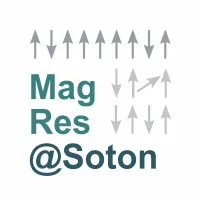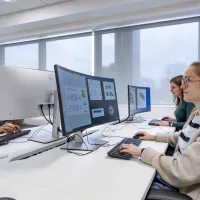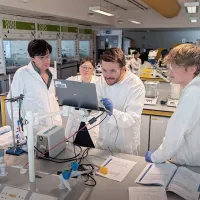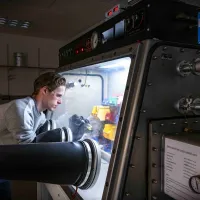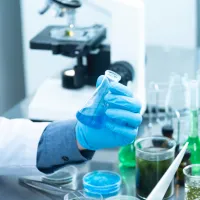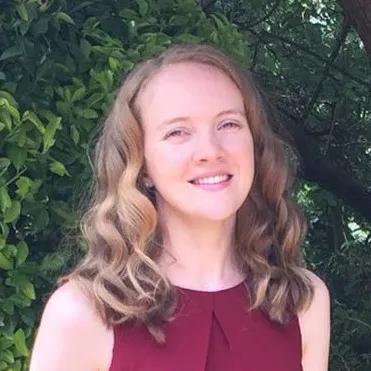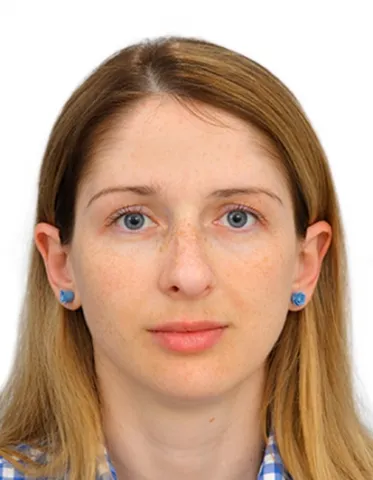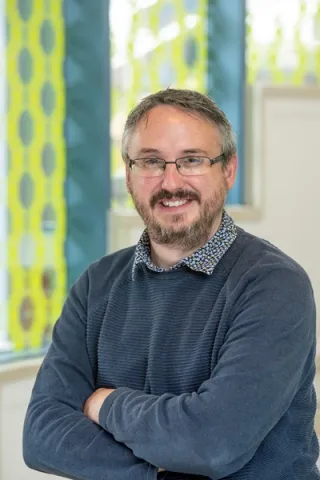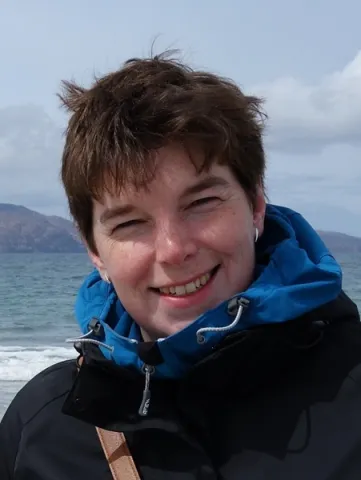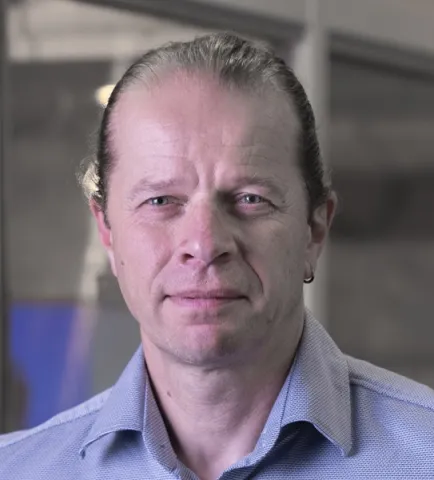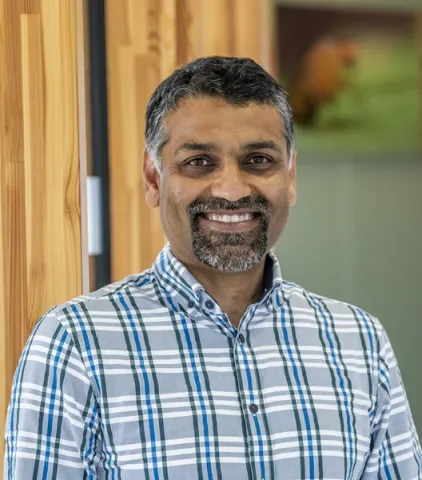Spectroscopy, Spectrometry, and Structure
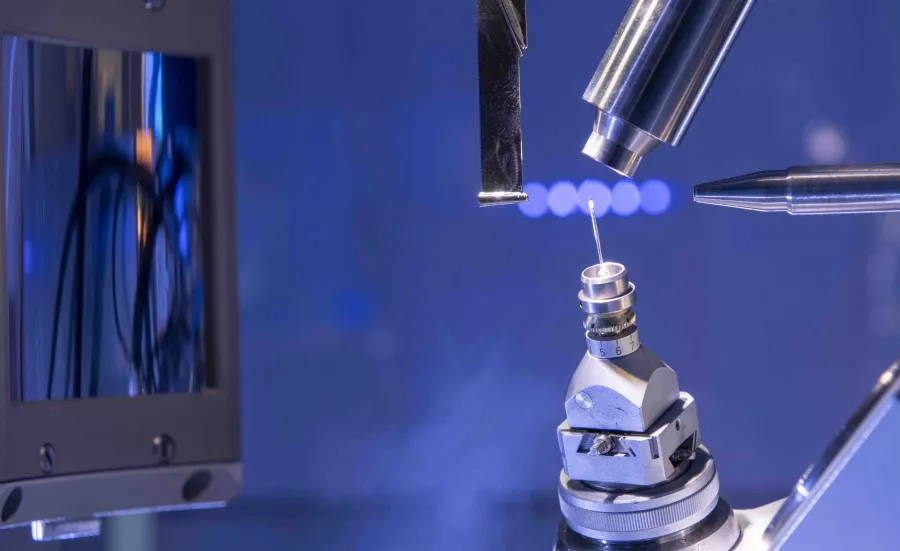
We develop and apply state-of-the-art tools and methods to provide chemical and structural insights into materials, biological and environmental systems

We develop and apply state-of-the-art tools and methods to provide chemical and structural insights into materials, biological and environmental systems

Our group develops and applies advanced spectroscopy, spectrometry and diffraction methodologies in the fields of chemical, materials, biological sciences and medicine.
We have a track record for developing theory, methodology, hardware, and open-source simulation tools. We have also authored well-received textbooks.
Our spectroscopic methods include:
Imaging experiments are performed by Raman microscopy, non-linear spectroscopy and magnetic resonance imaging (MRI). This enables chemical distributions and molecular changes to be mapped in complex and living systems and has particular applications in therapeutics, health monitoring and diagnostics.
Research in the Centre for Magnetic Resonance develops nuclear hyperpolarisation techniques, to significantly enhance NMR and MRI signals.
Much of our research features in-situ/operando NMR at non-ambient temperature and pressure. We perform femtosecond time-resolved scattering and spectroscopy measurements, on photochemical processes. This is achieved using conventional lab-based laser sources and international, free electron laser facilities. These techniques are supported by advanced simulation and optimisation software and numerical analysis tools. These are often developed in-house and have been adopted by users worldwide.
We host the National Crystallography Service (NCS). The NCS are international leaders in applying X-ray and electron diffraction to highly challenging structural characterisation.
Advanced studies include:
Modern separation science and mass spectrometry methodologies research includes developing and applying hyphenated approaches. These combine mass spectrometry with the following techniques:
These approaches tackle complex samples and matrices across various research areas including analytical science, energy and fuels (particularly oil-field chemistry), chemical biology, materials, synthetic organic chemistry and supramolecular chemistry.
Our methodological advances are leading to applications and commercial translation in materials, biology and medicine including developing new therapies, improving health monitoring and advancing diagnostics.

As a research technical professional in chromatography and mass spectrometry, I provide critical support in experimental design and data interpretation for colleagues in the School of Chemistry and Chemical Engineering

The group's research aims to push boundaries and is interdisciplinary, with applications across materials, environment and health. It also supports substantial knowledge exchange and enterprise activities through hosting national facilities and creating novel solutions
